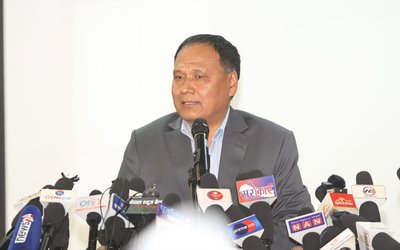
As Nepal has been passing through a transition with prolonging political uncertainty in its efforts at making an inclusive constitution, late Nelson Mandela's contribution to transform South Africa from the era of apartheid to a democratic and liberal society will be a good lesson to remember.
After his death, Nepalese leaders have expressed their faith on the model propounded by late Mandela to make Nepal an inclusive, liberal, democratic state. However, the commitment is yet to be translated into action. Political leaders are divided among themselves and they are yet to learn any serious lesson and take the meaning of reconciliation to heart.
"We need to learn from late Mandela. South Africa survived and escaped violence because of his strong commitment to national reconciliation," said Nepali Congress leader Sunil Kumar Bhandari. “Our leader B.P. Koirala also died calling on all to work for the cause of reconciliation. It is not easy to champion reconciliation, there are many difficulties on its path."
Contrary to Mandela’s work, Nepalese political leaders stand on their hatred and confrontation campaign. There is no room for accommodation to all the political forces. Mandela had shown how the society reconciled when he invited Pter Botha, a white leader who put him in the prison, as his vice president.
Giving high importance to the contribution Mandela had made, Nepal government has sent foreign minister Madhav Prasad Ghimire to take part in the commemoration of the late leader of South Africa. Former South African president, Mandela, died at the age of 95 last week. The memorial service was one of the biggest gatherings of international dignitaries in the recent years.
Hundreds of people assemble outside the stadium during the night, the BBC's Joe Winter reported from the scene. Crowds, many wearing Nelson Mandela t-shirts and South African football and rugby tops, were singing songs from the time of the fight against apartheid.
- IME GROUP: Expands Into Paper Industry
- Mar 24, 2025
- CPN UML: Instigated By India
- Mar 23, 2025
- ADB’S CHIEF ECONOMIST: Nepal Reduces Poverty
- Mar 11, 2025
- FM DR. DEUBA: A Successful Visit
- Mar 11, 2025
- MD GHISING: Target Of Personal Grudge
- Mar 09, 2025














